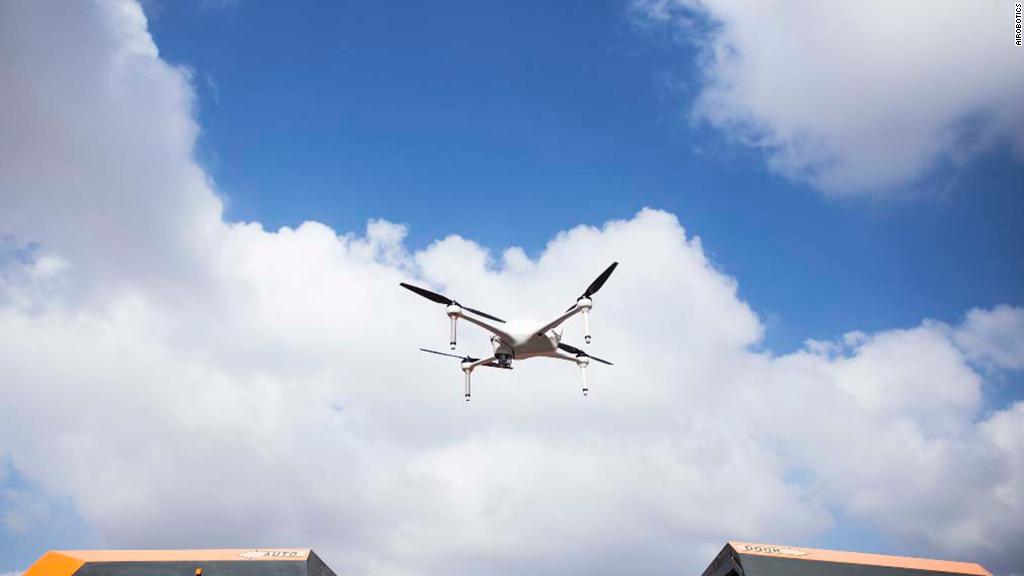
When Ran Krauss co-founded Airobotics in 2014, he wanted to help miners, farmers and port managers get better data about their businesses.
The Israeli start-up makes self-flying drones, and its worked out a way to keep them operational 24 hours a day.
Drones are already used by large industrial and agricultural operations. Farmers have been using drone technology paired with AI to help spot diseased crops. Emergency crews used them in Puerto Rico to survey damage after Hurricane Maria.
The technology is a boon for businesses with lots of area to observe.
"I think it allows the people that used to do the manual jobs to focus on other things that are more important, and actually require the human mental capacity, rather than doing relatively simple actions," Krauss said.
But until now the drones had some built-in problems: Human operators cost a lot of money (some earn as much as $100,000) and the aircraft run out of battery quickly.
Related: Self-driving cars are already really safe
Airobotics' fully automated drones don't need operators, and their battery life isn't an issue because they've got replacements ready to go.
Each Airobotics drone has its own miniature airbase -- a 3-ton metal box that houses a robotic arm to change the batteries and cameras. The drones automatically navigate to and from the airbase boxes. Getting drones to land in boxes has been a major challenge for many companies working on automated drones. But Airobotics thinks it's solved the problem.
The whole point for Krauss, a serial entrepreneur who's launched four other startups (three related to drones) was to make using a drone easier.
"So you want to map something, you'll get the map," Krauss told CNNMoney. "You don't have to do anything ... whereas if you fly a drone manually, you then have to extract the data, analyze it, and create whatever you want from it, only then you get the product. With us it's all automatic."
Related: For self-driving cars, car washes are a nightmare
Mining companies have become a major client for Airobotics because they use the drones to collect data about their stockpiles. Instead of sending a human to go out and manually survey how much material they have piled up on their grounds, a drone is programmed to go out and send back the data it has collected via its sensors and cameras.
While much of the work the automated drones do right now is passive observation, Krauss expects self-flying drones to take on a more active role, especially in seaports.
"Right now [when a ship comes into port] there's a small ship leading the way, making sure that it follows the right path according to the depth of the seabed," Krauss said. "We're thinking about a situation where a drone would do that. So the boat would follow a drone coming into the port."

